Professor Peter von Dadelszen
Professor of Global Women's Health
Research interests
- Women
Biography
A dual citizen of both New Zealand and Canada (permanent resident in the UK), and a NZ-, UK- and Canadian-trained and accredited obstetrician (maternal-fetal medicine), Peter von Dadelszen is a Professor of Global Women’s Health at King’s College London, Honorary Consultant Obstetrician at King’s Health Partners (London, UK), and a Council member of the Royal College of Obstetricians and Gynaecologists. He is married to Laura Magee, Professor of Women’s Health at KCL, with whom he leads a women’s health research group. With over 40 years’ postgraduate clinical experience, his undergraduate and early postgraduate training were in New Zealand (BMedSc, MBChB, DipObst [Otago]), and he completed his general obstetrics and gynaecological training in UK, where he also undertook his doctoral training with Professor Chris Redman (and met Professor Magee) (DPhil [Oxon]).
Following maternal-fetal medicine, clinical pharmacology, and postdoctoral research training in Toronto (CertMFM, CertClinPharm [Toronto]), he was at the University of British Columbia and BC Women’s Hospital, Canada for 15 years (2000-15) and St George’s, University of London for two (2015-17). Increasingly over the past 15 years, Professor von Dadelszen’s research focus has been in less-developed countries. Initially, this was as the principal investigator of the PRE-EMPT (PRE-eclampsia & Eclampsia Monitoring, Prevention & Treatment) initiative funded by the Bill & Melinda Gates Foundation (2010-19). In PRE-EMPT, he led research spanning qualitative assessment of barriers and facilitators of maternal health, health geography and economics, population health, outcome prediction, medical device development and testing, task-sharing, individual and cluster randomised controlled trials, at-scale implementation, global basic science collaboration, knowledge translation and advocacy.
PRE-EMPT involved collaboration with colleagues, NGOs, and governments in Africa (Mozambique, Nigeria, South Africa, Uganda, Zimbabwe), Asia (China, India, Pakistan), Oceania (Fiji), and Latin America (Argentina, Brazil), as well as engaging with the World Health Organization (WHO). More recently, as principal investigator, Professor von Dadelszen has initiated the UKRI-funded PRECISE (PREgnancy Care Integrating translational Science, Everywhere) Network (2017-22) that is building African research capacity through a project that is, in turn, deeply phenotyping ≈6,900 unselected pregnant women to understand pathways to resilient and complicated pregnancy outcomes in western (The Gambia), eastern (Kenya) and southern (Mozambique) Africa, and engages health geography colleagues in Zimbabwe. This phenotyping includes biomarkers, infectious and non-communicable disease burden, and social determinants of health. The receipt of Wellcome Trust funding of PRECISE-DYAD (2020-25) will achieve deep phenotyping follow-up of both mothers and their infants up to three years of age.
His most important publications have been the meta-regression analysis of the interaction between blood pressure control and fetal growth velocity (Lancet 2000), that led to Professor Magee’s CHIPS trial (NEJM 2015); the development of the fullPIERS (Lancet 2011), miniPIERS (PLoS Med 2014), and, most recently, PIERS-ML (Lancet Digit Health 2024) models; the observation that PlGF can discriminate between constitutional SGA and placental FGR (Placenta 2016); and the PRE-EMPT Calcium and Pre-eclampsia (Lancet 2019), oral antihypertensives for severe pregnancy hypertension (Lancet 2019), CLIP (Lancet 2020), and WILL (PLoS Med 2024) trials; and review of the origins, consequences, prevention, and management of pre-eclampsia (NEJM 2022). With Professor Magee, Professor von Dadelszen was co-recipient of the 2014 International Society for the Study of Hypertension in Pregnancy Chesley Award for their career contributions to pregnancy hypertension research and mentorship.
ORCID link: Peter von Dadelszen (0000-0003-4136-3070) - ORCID
Professor von Dadelszen is a course teacher on Women's Health iBSc, Global Health iBSc, Women's Health MSc, Global Health MSc/
Research

Centre for Conflict & Health Research
Cross disciplinary initiative studying the intersection of global health, security, and political governance in conflict-affected fragile states and regions.

Global Maternal Health
Global Maternal Health

Maternal Hypertension
The Hypertension group strategy focuses on improving outcomes for women with hypertension in pregnancy
News
Accuracy of pre-eclampsia risk prediction models found to deteriorate over time
A new international study has found that current models used to assess the risk for women with pre-eclampsia do not perform adequately if used repeatedly over...
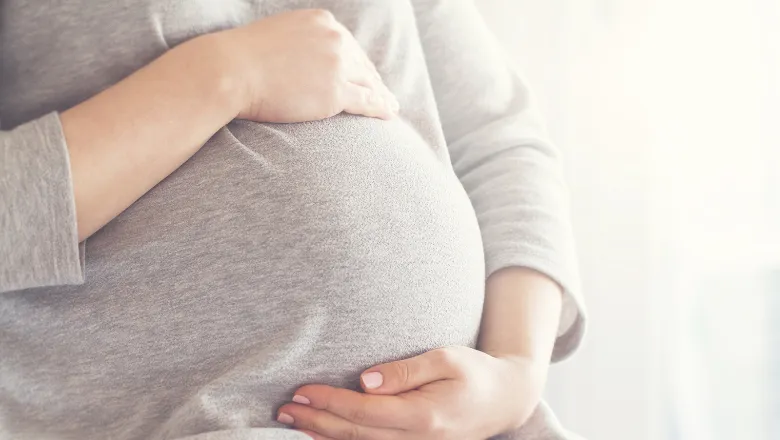
Risk of adverse outcomes of pre-eclampsia accurately identified through new AI model
A potentially lifesaving model for identifying maternal risk in pregnant women with pre-eclampsia has been developed by researchers.

Scheduled childbirth could cut pre-eclampsia risk by 50%
Latest analysis of data shows that delivering babies earlier at term minimises occurrence of pre-eclampsia in women at increased risk of this important...
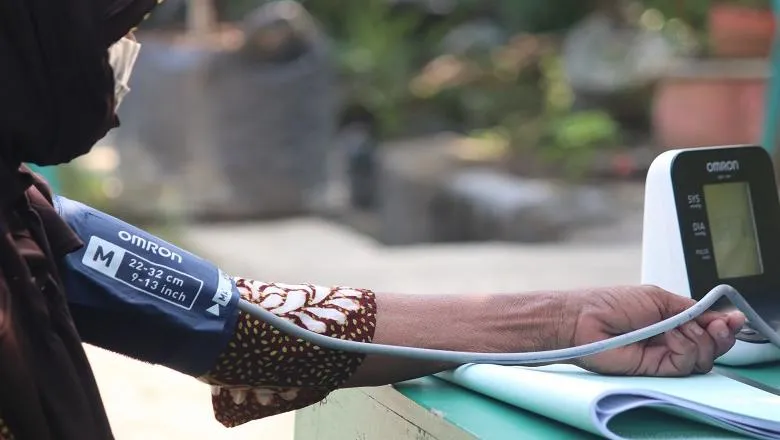
Review into pre-eclampsia care published
Researchers from King’s College London have published a review of care for women with pre-eclampsia in the New England Journal of Medicine.

Government funding for AI technology used to calculate pre-eclampsia risk
A project proposal to develop new artificial intelligence (AI) technology to calculate women’s risk of pre-eclampsia has been successful in the latest round...

Reducing maternal mortality in low- and middle-income countries
New study suggests strongest method to ascertain maternal cause of death.
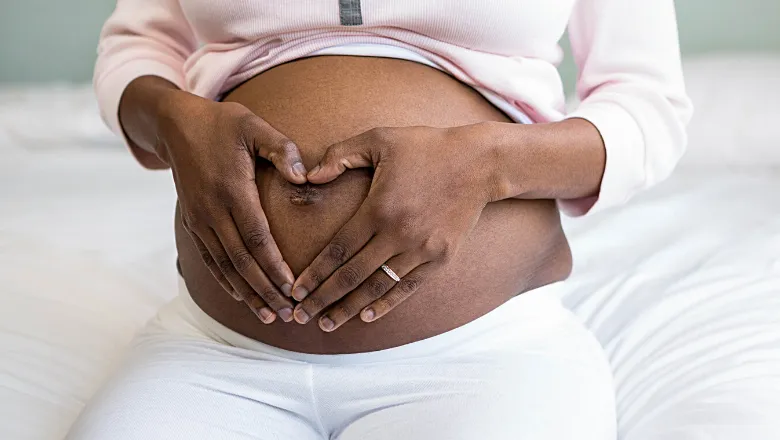
Thresholds for diagnosing hypertension in pregnancy should not be lowered
New study shows that lowering the threshold for a high blood pressure diagnosis in pregnant women is unlikely to lead to improved outcomes in low-resource...

King's project wins government funding to develop AI tools
An app that uses artificial intelligence to recognise a woman’s risk of complications of pre-eclampsia has been successful in the latest round of the...

Assessing cost-effective interventions to reduce maternal, stillborn and newborn deaths
A study conducted in India, Mozambique and Pakistan finds that eight pre- and postnatal visits from community health workers (CHWs) is a cost-effective way to...

Community health workers reduce maternal, foetal and new-born deaths, study finds
Large forces of trained community health workers and standardised healthcare systems could reduce the number of maternal, newborn and foetal deaths, a study...
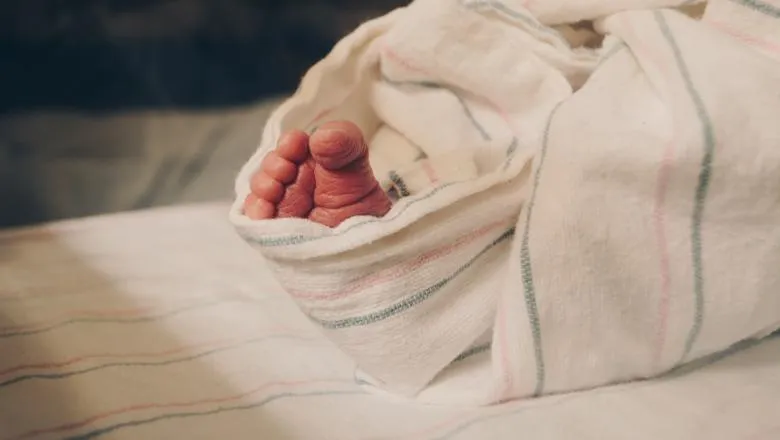
Events
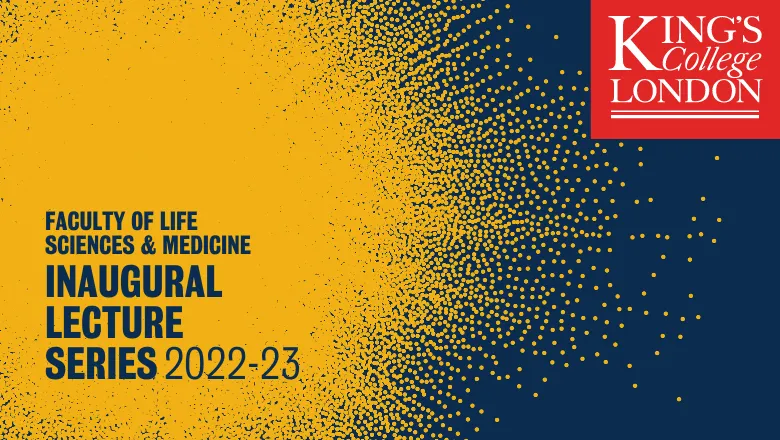
Inaugural Lecture: Professors Laura Magee & Peter von Dadelszen
Inspiring talks from some of our brightest minds
Please note: this event has passed.
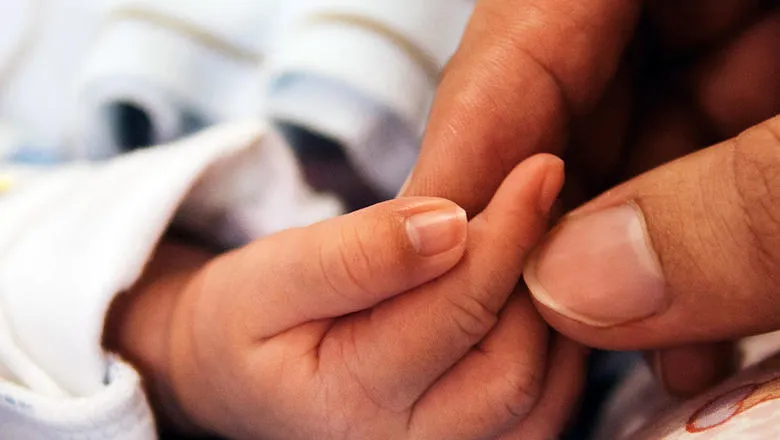
KGHI Research Seminar - PRECISE & CRADLE
Focusing on King's research in global health by the PRECISE and CRADLE networks
Please note: this event has passed.
Spotlight
Improving outcomes of high-risk pregnancy
Addressing an unmet meet need for strategies to identify women and babies at risk of serious complications of pregnancy

Research

Centre for Conflict & Health Research
Cross disciplinary initiative studying the intersection of global health, security, and political governance in conflict-affected fragile states and regions.

Global Maternal Health
Global Maternal Health

Maternal Hypertension
The Hypertension group strategy focuses on improving outcomes for women with hypertension in pregnancy
News
Accuracy of pre-eclampsia risk prediction models found to deteriorate over time
A new international study has found that current models used to assess the risk for women with pre-eclampsia do not perform adequately if used repeatedly over...

Risk of adverse outcomes of pre-eclampsia accurately identified through new AI model
A potentially lifesaving model for identifying maternal risk in pregnant women with pre-eclampsia has been developed by researchers.

Scheduled childbirth could cut pre-eclampsia risk by 50%
Latest analysis of data shows that delivering babies earlier at term minimises occurrence of pre-eclampsia in women at increased risk of this important...

Review into pre-eclampsia care published
Researchers from King’s College London have published a review of care for women with pre-eclampsia in the New England Journal of Medicine.

Government funding for AI technology used to calculate pre-eclampsia risk
A project proposal to develop new artificial intelligence (AI) technology to calculate women’s risk of pre-eclampsia has been successful in the latest round...

Reducing maternal mortality in low- and middle-income countries
New study suggests strongest method to ascertain maternal cause of death.

Thresholds for diagnosing hypertension in pregnancy should not be lowered
New study shows that lowering the threshold for a high blood pressure diagnosis in pregnant women is unlikely to lead to improved outcomes in low-resource...

King's project wins government funding to develop AI tools
An app that uses artificial intelligence to recognise a woman’s risk of complications of pre-eclampsia has been successful in the latest round of the...

Assessing cost-effective interventions to reduce maternal, stillborn and newborn deaths
A study conducted in India, Mozambique and Pakistan finds that eight pre- and postnatal visits from community health workers (CHWs) is a cost-effective way to...

Community health workers reduce maternal, foetal and new-born deaths, study finds
Large forces of trained community health workers and standardised healthcare systems could reduce the number of maternal, newborn and foetal deaths, a study...

Events

Inaugural Lecture: Professors Laura Magee & Peter von Dadelszen
Inspiring talks from some of our brightest minds
Please note: this event has passed.

KGHI Research Seminar - PRECISE & CRADLE
Focusing on King's research in global health by the PRECISE and CRADLE networks
Please note: this event has passed.
Spotlight
Improving outcomes of high-risk pregnancy
Addressing an unmet meet need for strategies to identify women and babies at risk of serious complications of pregnancy

